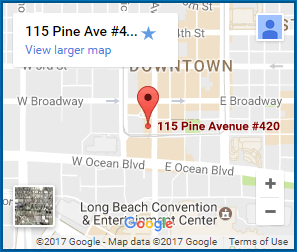Long Beach | Los Angeles | Child Custody Lawyer
How the responsibility for raising a child is divided between the parents after they separate is probably the most contentious area within Family Law. A judgment of divorce involving children, or a paternity judgment, will specify how the parents shall share legal and physical custody of the children jointly, (joint custody), or whether one of the other of them shall have sole legal and, or, sole physical custody. Child custody and visitation orders can be in the initial orders pending a judgment, a judgment or in post-judgment modification orders.
Legal Custody
The duty to make decisions for a child while he or she is still a minor. e.g. choosing a school, medical treatment, religious upbringing.
Physical Custody
The duty to provide care for the child on a day to day basis.
Emergency (Ex parte) Child Custody Orders
California Family Code Section 3064(a) requires that a court not grants an order modifying custody on an ex parte basis unless the requesting party establishes that not to grant it would cause immediate harm to the child or that there is a danger that the child will be removed from California. Examples of what would be considered immediate harm to the child include: recent acts of domestic violence by a parent and, sexual abuse of the child.
In California, parents are encouraged to resolve their differences over child custody and visitation without the need for a judge to hear their issues and make a ruling. This is why parties are sent to classes on cooperative parenting and must attempt to resolve their issues with the help of a court assigned mediator (Family Law Facilitator) before a judge will hear their case.
Best Interests of the Child
There are a number of principles the courts follow in determining child custody issues. The most important of all is best interests of the child. In determining the child’s best interest the court looks to statutes, (e.g. rebuttable presumption that parent who has been found to have committed domestic violence is not entitle to legal or physical custody), case law (factors to be considered in determining whether a parent is entitled to move out of area with the parties minor child), and the factual circumstances of the case, (e.g. the ability of each parent to care for their child based on their work schedule, and/or the amount of time child was living with each parent prior to the court hearing)
Often, parents believe that judges are prejudiced in favor of mothers or fathers. Judges are human and come with human prejudices. Some believe that all things being relatively equal (i.e. even if there is one parent that is always more conscientious than the other or not able to offer the child as much materially that doesn’t outweigh the presumption for frequent and continuing contact for both parents) and if convenient (i.e. distance of parents from each other and school, parents working hours) for the child, that 50/50 custody is the best possible arrangement. Also there are some judges that believe frequent and continuing contact does not necessarily mean 50/50 even where both are good parents and that it is in the child’s best interest to maintain a parenting schedule, even if not 50/50 that a child has grown accustomed to over time.







